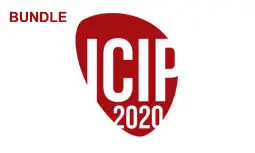LEARNING TO BLINDLY ASSESS IMAGE QUALITY IN THE LABORATORY AND WILD
Weixia Zhang, Kede Ma, Guangtao Zhai, Xiaokang Yang
-
Members: FreeSPS
IEEE Members: $11.00
Non-members: $15.00Length: 11:47
27 Oct 2020
Computational models for blind image quality assessment (BIQA) are typically trained in well-controlled laboratory environments with limited generalizability to realistically distorted images. Similarly, BIQA models optimized for images captured in the wild cannot adequately handle synthetically distorted images. To face the cross-distortion-scenario challenge, we develop a BIQA model and an approach of training it on multiple IQA databases (of different distortion scenarios) simultaneously. A key step in our approach is to create and combine image pairs within individual databases as the training set, which effectively bypasses the issue of perceptual scale realignment. We compute a continuous quality annotation for each pair from the corresponding human opinions, indicating the probability of one image having better perceptual quality. We train a deep neural network for BIQA over the training set of massive image pairs by minimizing the fidelity loss. Experiments on six IQA databases demonstrate that the optimized model by the proposed training strategy is effective in blindly assessing image quality in the laboratory and wild, outperforming previous BIQA methods by a large margin.



